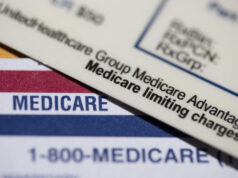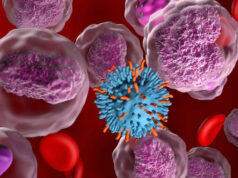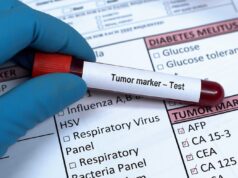 Raising HDL (high-density lipoprotein) cholesterol is recommended for protection against cardiovascular disease. HDL helps remove the cholesterol that clogs arteries by taking it to the liver for elimination. It appears that high levels of HDL cholesterol (more than 35 mg/dL) are protective even if your total cholesterol levels are high. In addition, having a low level of HDL is now considered an independent risk factor, meaning that if your total cholesterol is within limits but your HDL is too low, your risk of heart disease is still elevated.
Raising HDL (high-density lipoprotein) cholesterol is recommended for protection against cardiovascular disease. HDL helps remove the cholesterol that clogs arteries by taking it to the liver for elimination. It appears that high levels of HDL cholesterol (more than 35 mg/dL) are protective even if your total cholesterol levels are high. In addition, having a low level of HDL is now considered an independent risk factor, meaning that if your total cholesterol is within limits but your HDL is too low, your risk of heart disease is still elevated.
Follow these steps to raise your HDL cholesterol. You’ll get the most benefit if you try to make as many changes as possible:
1. Use foods higher in monounsaturated fats, such as canola or olive oil. There is strong evidence that monounsaturated fats raise HDL levels without affecting total cholesterol. Include one to two teaspoons of olive or canola oil with each meal.
2. Add more foods high in soluble fiber to your diet. Soluble fiber is found in oats, apples, grapes, citrus fruits; and legumes. The soluble fiber in these foods helps lower total cholesterol and raises HDL levels. Try eating at least two servings of these foods each day.
3. Add aerobic exercise, such as walking, biking and swimming, which helps raise HDL levels. Try to be active for at least 30 minutes each day.
4. Stop smoking; smoking not only lowers HDL levels, it is also an independent risk factor for heart disease.
5. Eat foods that contain phytoestrogens such as soy products. Tofu, tempeh, and TVP (texturized vegetable protein) all may help raise HDL levels. Include at least two servings each day. A simple method is to make a blender smoothie using soymilk and fresh fruit each morning.
6. Eat less trans fatty acids, which are found primarily in deep-fat fried foods such as French fries and processed baked goods such as cookies, crackers and cakes. Tub or squeeze margarine contains less trans fatty acids than stick versions.
7. Niacin can be used to raise HDL levels. The amount necessary should be used only with a physician’s approval.
Talk to your doctor before changing your diet.
_________________
Laura Shammah is a nutritionist in Brooklyn.



